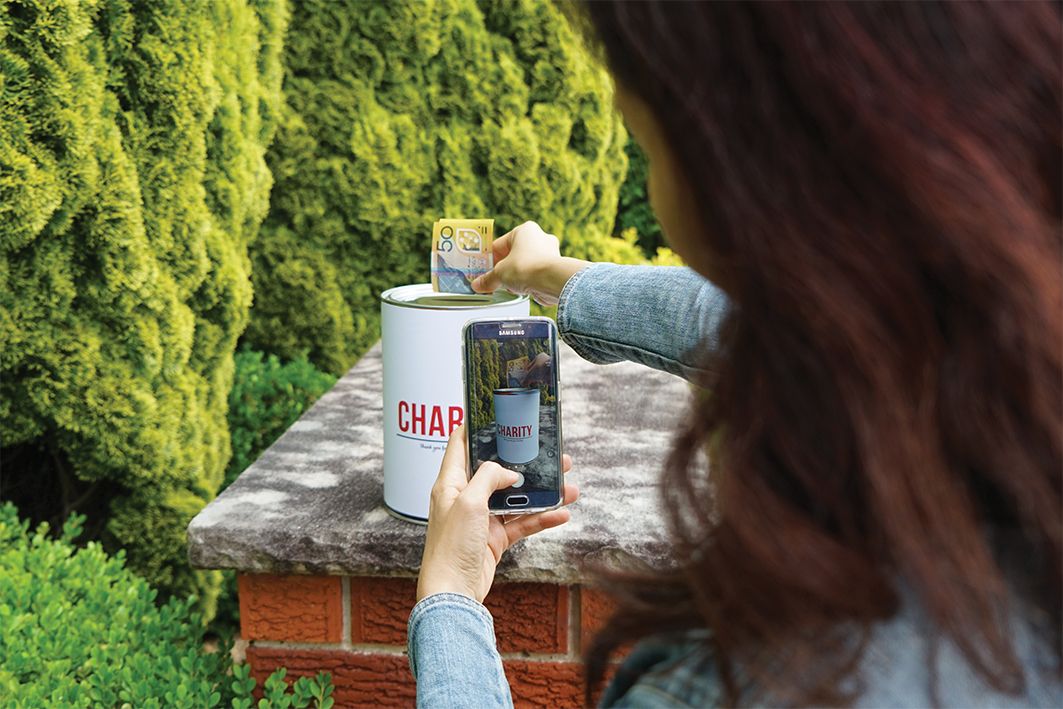Ever heard of the quote “No good deed goes unpunished”? I heard it for the first time today.
It might sound like an oxymoron—why would you punish a good deed? However a colleague informed me that this was an old-fashioned way of saying good deeds are often unappreciated by others. At times, they are even met with downright hostility. I decided I liked the quote—it’s a surprisingly apt description of society today, the era of the iPhone, Facebook and what US comedy writer Harris Wittels describes as the “humble-brag”.
Harris coined the term to describe “a specific type of bragging which masks the brag in a faux-humble guise. The false humility allows the offender to boast [about] their ‘achievements’ without any sense of shame and guilt.”
According to an article in The Independent, the worst humble-brag offenders are usually celebrities who have a lot to brag about, but for the most part, “maintain enough self-awareness not to wantonly show off about the luck that has befallen them”. But “ordinary” people are now causing offence too.
A recent post on Facebook generated at least 73,000 reactions and more than 60,000 shares. It wasn’t a cat video, a political meme or even a celebrity selfie. It was a simple black-and-white image emblazoned with the text: “If you want to feed the homeless, then feed the homeless. But the moment you post it on social media, you’re also feeding your ego.”
“Is posting your good deeds on social media really about altruism?” asks Alyssa Rachelle, in her article on website MadameNoire.
We know that what we post on social media can influence people’s perception of us. So if we post our good deeds on the likes of Instagram, Facebook or Snapchat, are we really being unselfish or are we just humble-bragging and looking for brownie points?
It’s the latter for actress Lucy Gransbury. “Facebook is full of good-deed-gloating,” complains Lucy in a written contribution to website Mamamia. “Statuses in which people attempt to be subtle, but really are screaming ‘QUICK, EVERYONE, LOOK HOW GENEROUS I WAS TODAY!’ ”
Personally, I find it strange we’re so quick to judge people’s motivation for posting good deeds on social media but often turn a blind eye to posts about other things.
We don’t accuse people of being self-centred when they change their Facebook status from “Single” to “In a relationship”. We don’t tell people they’re egotistical as we scroll through Snapchat selfies with flower crowns and puppy-dog ears. And we don’t question people’s motivations when they proudly share their graduation photos, job promotions or overseas holiday plans. Instead we rejoice with them, congratulate them and wish we were there. We don’t get angry and frustrated with them (for the most part, anyway).
The truth is that we can’t judge people’s motivations for posting what they do. We might draw conclusions from their tone or choice of words, but ultimately, only the person posting can articulate the reasons behind their post. Otherwise we’d have to question the purpose of everything we see posted on social media. And just how do you judge the purpose of a Snapchat selfie?
Even if people are promoting good deeds, isn’t it nice to have something positive to look at for a change?
The movement #LoveWhatMatters has a following of more than 7 million people on Facebook. According to their website, the movement began with a simple premise: “There are millions of good people who want to celebrate the moments in life that matter. There are plenty of places to go if you want news about crime and violence, celebrity gossip or politicians attacking one another. But where do you go when you want to be inspired? Where do you go when you want to read about foster kids being adopted, military heroes returning to their families, a dad opening a box to learn he’s now a grandfather or a first wedding dance that doctors thought would never happen? These are the things that matter, and we celebrate them every day.”
LoveWhatMatters.com frequently highlights the good deeds people do in everyday life, whether it’s leaving an enormous tip for a financially-strapped server or a shout-out to someone who helped carry their groceries. People commenting on the site’s posts say that reading about these acts of kindness restores their faith in humanity and gives them hope for the future.
In this case, posting good deeds on social media has nothing to do with ego and everything to do with spreading moments of light in a darkening world. Not only that, but the humble-brag has the potential to not only raise awareness of good deeds but inspire others to contribute too.
According to care2.com, GoodyGood is a mobile app that was specifically built for users to share their good deeds in the hope they could inspire others to do good deeds too.
But let’s make one thing clear: doing good deeds does not make you a good person.
The genius behind the app was eight-year-old Nyla who believes that “a little seed grows into a big tree” and that “little random acts of kindness can change the world”. Nyla approached her parents with the concept of creating an app where people could record good deeds and words of kindness and hopefully inspire us. Her mum worked for a software company and her dad was a marketing strategy consultant and they were more than happy to help her create the app.
Although the app is no longer in the App Store, it proved very popular while it was available. Some people used it to share simple acts of kindness such as paying for the order of the car behind them in a drive-through or offering their seat to someone on the train. Others shared good deeds they had helped family and friends with, and still others shared what they had done for the community, such as donating clothes to second-hand stores or donating time for a school reading project. It was a great community for people wanting to help make the world a better place and inspire others in the meantime.
As a child, I loved reading all kinds of books (and still have the collection to prove it). But I’ve always had a special fondness for real-life biographies: inspiring true stories about people who made a positive difference in either local or overseas communities.
One of my childhood heroes was Elizabeth Fry, an English philanthropist and social reformer who was born in 1780. At the prompting of a family friend, Elizabeth first visited Newgate Prison in 1813 and was deeply horrified by the living conditions of the female prisoners and their children. She came back the next day with food and clothes for the women and eventually funded a prison school for the children. Elizabeth also taught the female prisoners at Newgate Prison how to sew, read and earn money for themselves. She campaigned heavily for the abolition of the slave trade, spoke frankly about the importance of improving prison conditions and established various nightly shelters for the homeless in London.
In 1818, Elizabeth gave evidence to a House of Commons committee about the horrific condition of British prisons and became the first woman to ever present evidence in Parliament. But she was not content to simply leave the issues to Parliament to sort out. She began doing tours around the continent, talking about the work she was doing and promoting the importance of welfare change and humanitarianism. Her tours inspired the King of Prussia to personally visit Newgate Prison and see the changes there for himself. Queen Victoria was also impressed by Elizabeth’s humanitarian work and contributed financially to her causes.
When Elizabeth died of a stroke in 1845, the seamen of the Ramsgate Coast Guard chose to fly their flag at half mast as a sign of respect for her; a practice that until this occasion was officially reserved for the death of a ruling monarch.
Elizabeth had no hesitations about bringing publicity to the causes she was supporting because she knew that this was the way to raise awareness of the causes and get other people on board. But let’s make one thing clear: doing good deeds does not make you a good person. In the Bible, the prophet Isaiah acknowledges this, telling us that our feeble attempts to earn brownie points with God are worthless: “Your righteousness is like filthy rags” (Isaiah 64:6).
Fortunately, God can see what’s in our hearts and read our intentions. In the end, it’s not what we do (or don’t do) but what we intend that matters. And maybe that’s what the social media critics want us to remember.
How helpful was this article?
Click on a star to rate it!
3.7 / 5. 3
Be the first to rate this post!
Related posts
Subscribe
Receive personalised articles from experts and wellness inspiration weekly!


